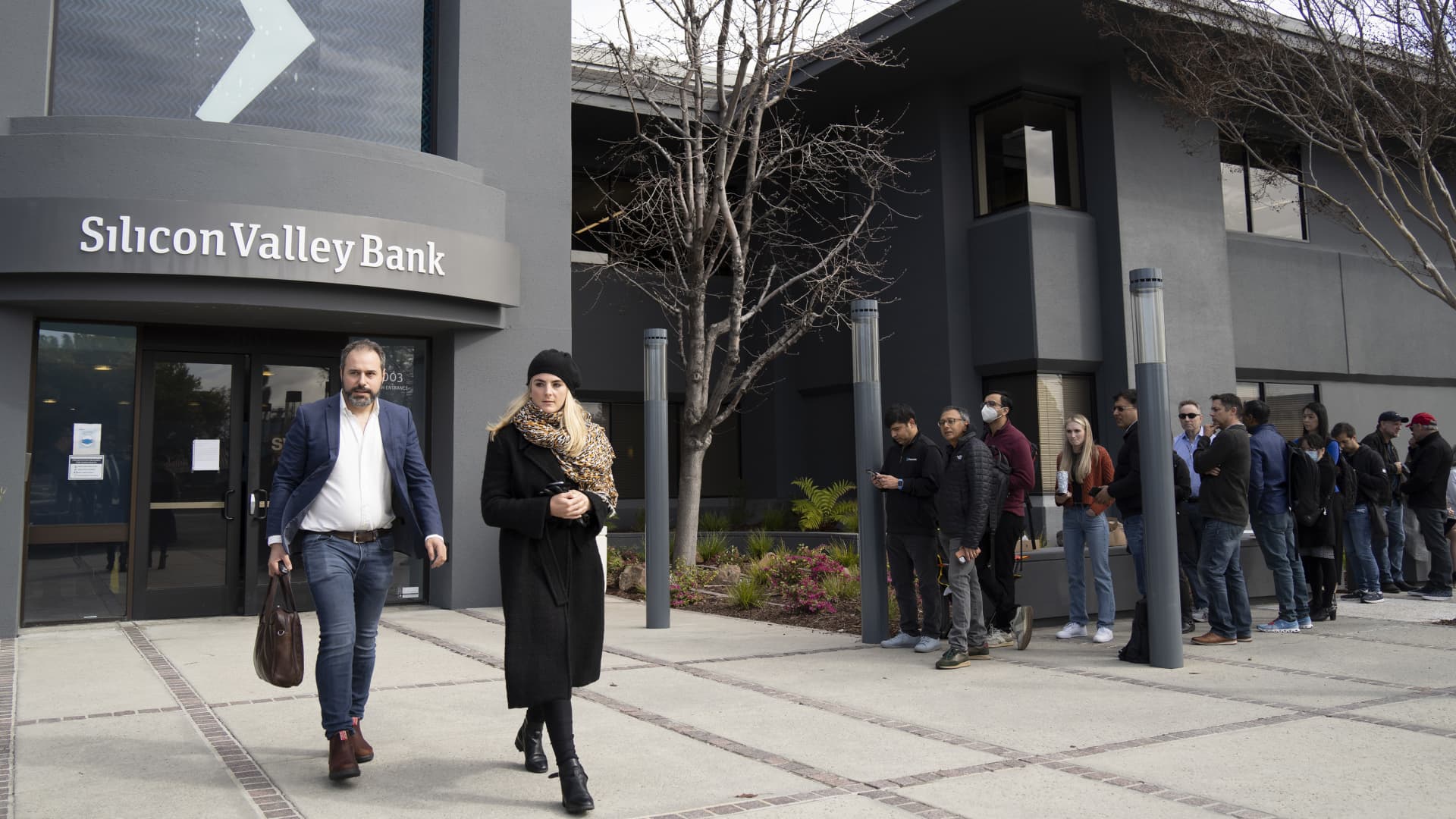Moody’s Analytics chief economist Mark Zandi thinks the Federal Reserve is unlikely to raise interest rates at its March meeting as there is a “boatload of uncertainty” around the recent bank failures.
The financial turmoil of the past few days will certainly affect monetary policy decision making when the Federal Open Market Committee meets next week, he added.
“I think they’re focused on the bank failures that roiled the banking system and markets over the last couple of days,” Zandi told CNBC’s “Street Signs Asia” on Wednesday.
“There’s a boatload of uncertainty here,” as a result the Fed will want to be cautious, he added. “I think they’re going… [to] decide not to raise interest rates at the meeting next week.”
His comments follow U.S. regulators shutting down Silicon Valley Bank on Friday and taking control of its deposits in the largest U.S. banking failure since the 2008 financial crisis — and the second-largest ever.
On Sunday, policymakers scrambled to backstop depositors at both SVB and Signature Bank, which was also shuttered, to stem the panic around contagion risks.
Inflation ‘moderating’
The Fed’s calculation on interest rates could get complicated as the U.S. economy continues to fight high inflation. The latest consumer price index data on Tuesday showed inflation rose in February, but was in line with expectations.
While inflation remains a problem for the U.S. economy, “it’s moderating” and moving in the right direction, said Zandi.
“But it is very high. I think… more rate hikes may be in order. But at this point in time, it is much more important to focus on what’s in your face — that is the potential for bigger problems in the banking system,” he explained.
Zandi isn’t alone in calling for a pause on rates hikes. On Monday, Goldman Sachs said it does not expect the Fed to hike rates this month. But the market is still pricing in for a 25 basis point hike next week, according to a CME Group estimate.
Bank downgrade
On Tuesday, Moody’s Investors Service cut its view on the entire U.S. banking system from stable to negative.
The rating agency noted the extraordinary actions taken to shore up impacted banks. But said other institutions with unrealized losses or uninsured depositors could still be at risk.
“I’m not in the ratings agency and don’t have any comment on the ratings action, that’s independent,” said Zandi. But he noted the move make sense in the context of higher interest rates, which could put pressure on the banking system.
Still, at the fundamental level, the economist believes the U.S. banking system is in a “pretty good spot.”
The failed institutions were unusual in that they catered to the technology sector in the case of SVB and the crypto markets, in the case of Signature, Zandi noted.
“There are banks that are in trouble, but they’re idiosyncratic,” he said. They’ve got tangled up with the problems in the tech sector and the crypto market. Outside of that, the system is well capitalized, highly liquid, with good risk management. “
Regional bank stocks and a slew of household names took a hit earlier in the week as jittery investors feared that government action and the takeover of both banks would spread to the broader sector. But bank shares rose sharply on Tuesday as regional banks attempted to rebound from a deep sell-off.
Aggressive action
Policymakers’ “very aggressive intervention in the market,” helped a lot said Zandi, as well as signals that the government “is going to do whatever it takes to support the banking system.”
Despite the reassuring moves, the economist said the Fed should still pause its rate hikes to gauge just how much conditions have tightened, and what the impact is on the broader economy and ultimately inflation.
He expects the Fed to make two more quarter-percentage-point rate hikes — 25 basis points each time, at the May and June FOMC meetings.
For now, Zandi reiterated it’s better for the Fed to “just take a breath here, pause and see how the banking system responds to all this and how much of a restraint that’s going to be on the broader economy,” and could resume to raise rates again later in May should inflation remain a problem.
— CNBC’s Jeff Cox contributed to this report
